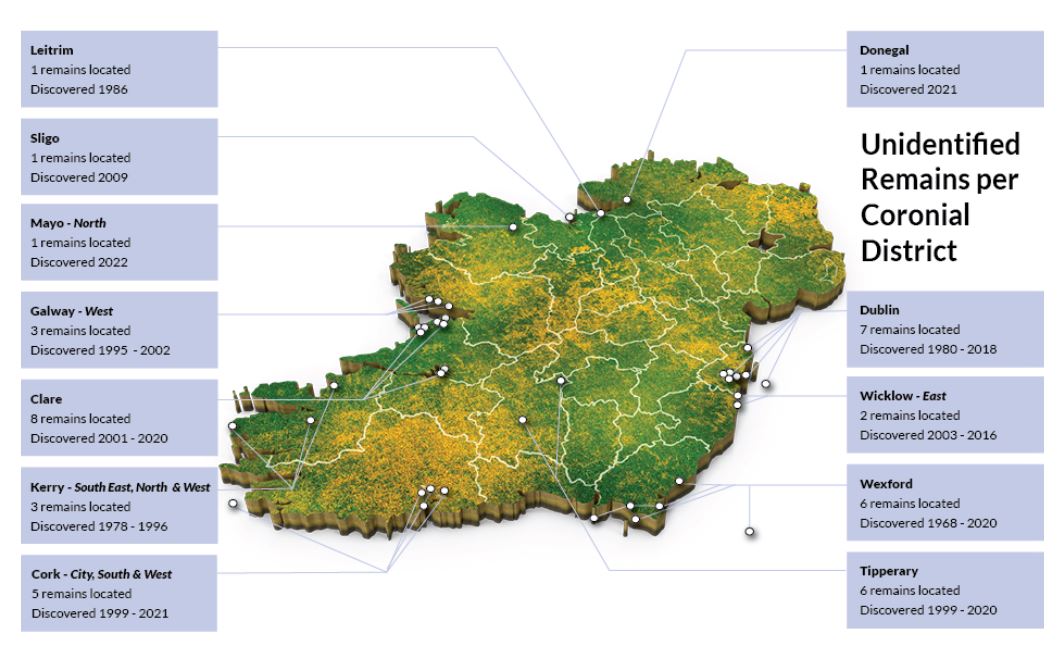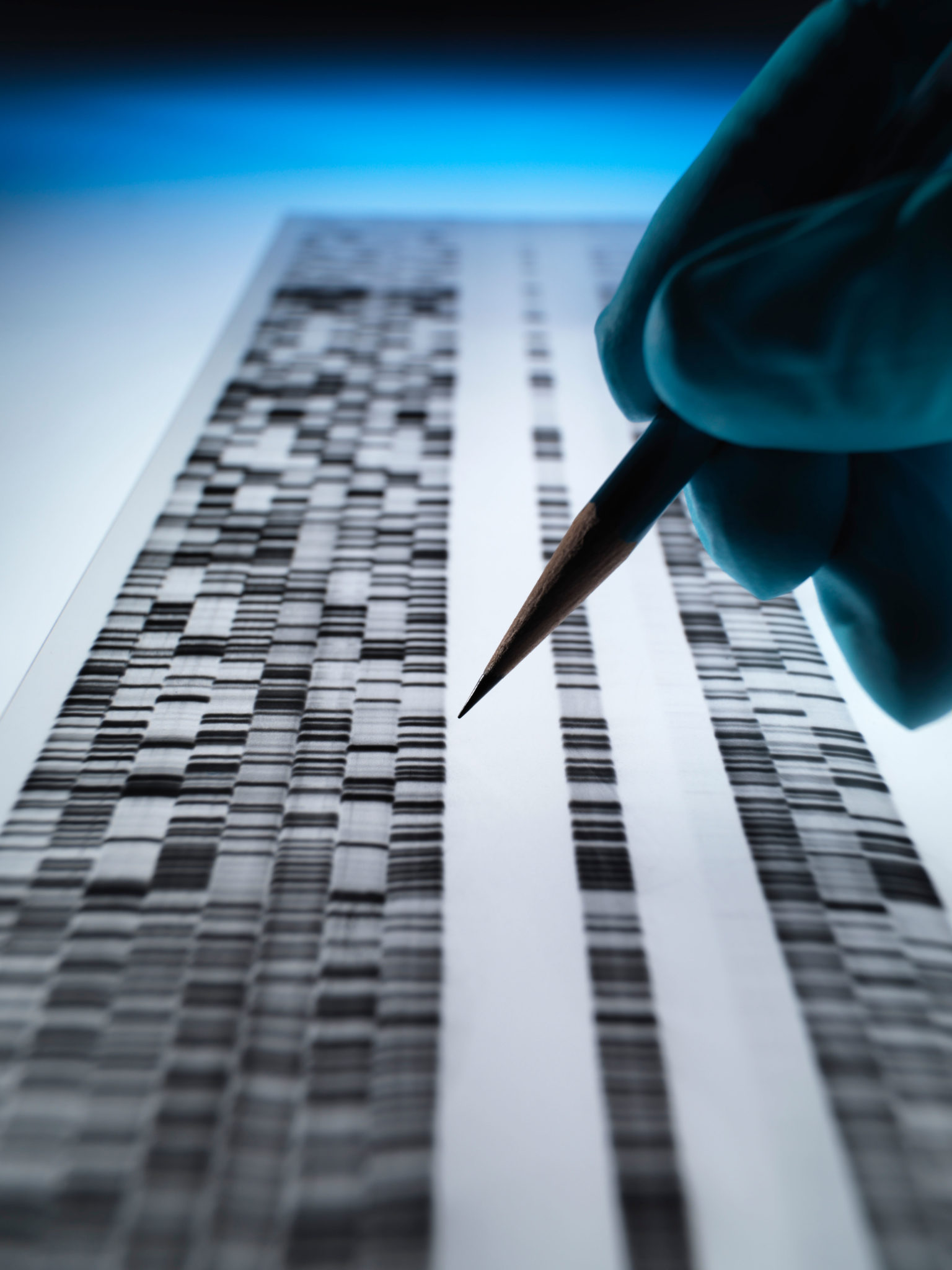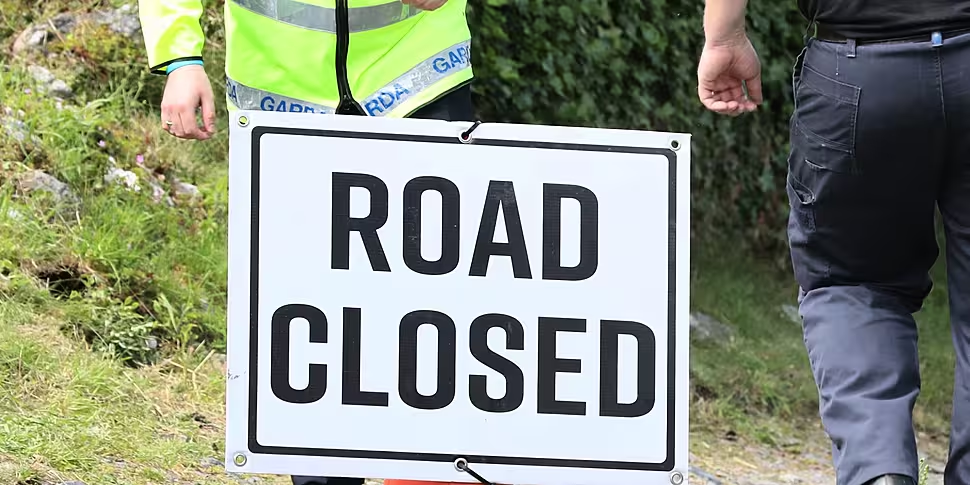A national database of unidentified human remains has been launched aimed at helping to identify more missing persons.
For the first time, details relating to 44 unidentified people have been made public and are available online.
Loved ones of missing people can now submit their own DNA via the Gardaí, or they can gather the DNA of the missing person from items like their clothes.
There are currently approximately 856 unsolved missing persons cases live on the Garda Pulse system.
Advancements in DNA profiling have led to case breakthroughs in recent years.
Coroners were asked to return updated details of any unidentified remains for their coronial district in December 2022, as part of annual statutory returns to the Minister for Justice.
Minister Helen McEntee committed to publishing this data once it was collated.
The Department of Justice has now published the information returned by the Coroners for the first time.
 Map of unidentified remains by coronial district. Picture by: Department of Justice
Map of unidentified remains by coronial district. Picture by: Department of JusticeThe department established a forum in July 2021, alongside An Garda Síochána's Missing Persons Unit and Forensic Science Ireland (FSI), to facilitate information exchange on unidentified remains.
Detective Chief Superintendent Colm Noonan said this has been years in the making.
"An Garda Síochána recognises the lasting sense of trauma for the families and friends of those who have gone missing," he said.
'If we manage to repatriate one set of remains to a family, it will have been worthwhile.' A national database of unidentified human remains has been launched, aimed at helping identify more missing people. pic.twitter.com/H3NAIQVUtX
— NewstalkFM (@NewstalkFM) May 16, 2023
"In 2018, An Garda Síochána commenced a substantial body of work in relation to unidentified human remains and this work continues to date.
"An Garda Síochána are part of a working group which was established by the Department of Justice to explore the creation of an Unidentified Remains Database with representatives from the Department of Justice, Forensic Science Ireland and the State Pathologists Office".
 DPDM57 A scientist viewing DNA gel used in genetics. Picture by: Cultura Creative RF / Alamy Stock Photo
DPDM57 A scientist viewing DNA gel used in genetics. Picture by: Cultura Creative RF / Alamy Stock PhotoDetective Noonan said there is also close cooperation with authorities in Britain and other countries.
"Operation Runabay, which was established in 2017 by the Missing Persons Unit, has a particular focus on advancing the investigation of cases involving unidentified persons discovered along the western coast of the United Kingdom," he said.
"In recent years, the Missing Persons Unit has expanded this operation to include greater cooperation with the British National Crime Agency and other neighbouring jurisdictions - exchanging information related to missing persons and unidentified human remains both at home and in other jurisdictions.
"As a member of the Maritime Missing Persons Expert Group, An Garda Síochána can circulate alerts to a number of countries enabling faster conveyance of information of unidentified remains," he added.
Additional reporting: Mairéad Cleary









